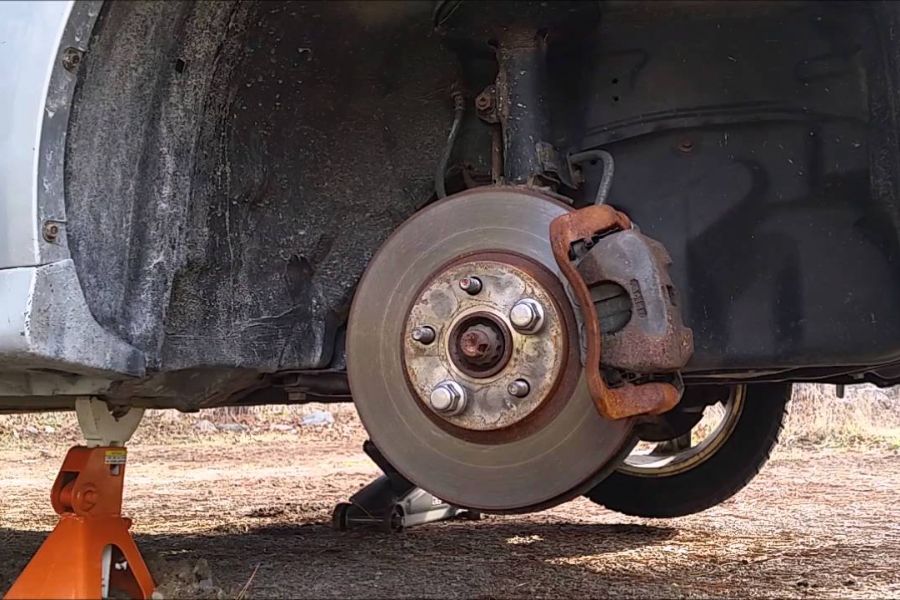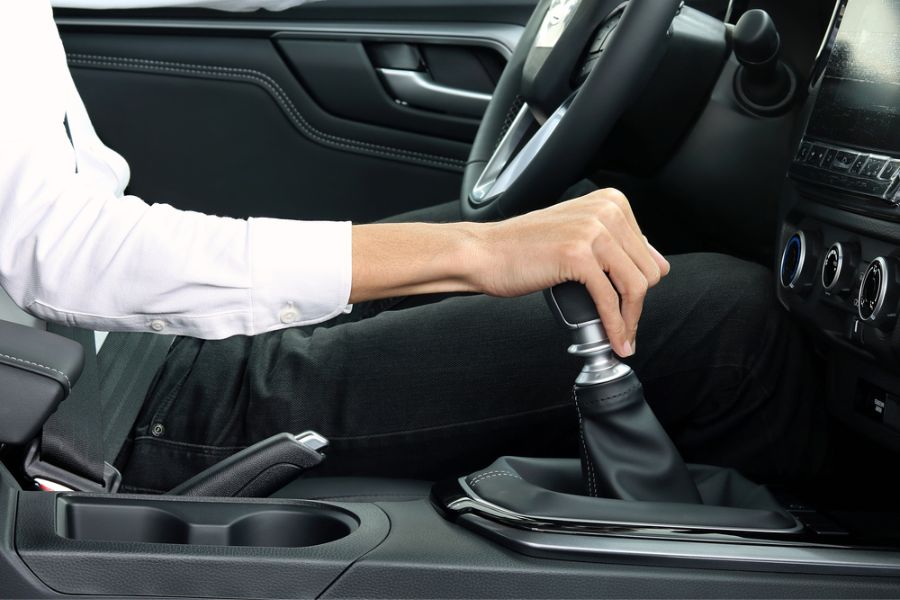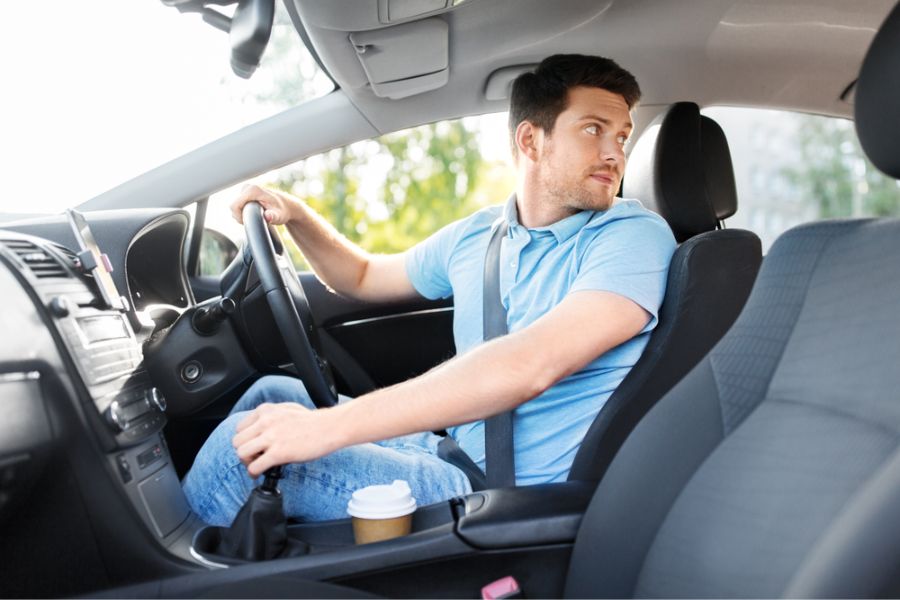Hearing a strange noise from your car’s brakes can be pretty scary. You need to learn what these sounds mean. Whether your brake pads are old, your brake rotors aren’t working right, or your brake callipers aren’t working right.
We’ll talk about why your brakes might be making a racket when you reverse and what it sounds like when your rear drum brakes are not happy.
We want to make sure you know your car like the back of your hand and keep it running smoothly, keeping you safe on the road.
Why Do Brakes Make a Loud Noise When I Reverse?
It’s important to understand why car brakes might make noise. If you don’t look into why your brakes are making noise, they could fail. A brake system that doesn’t work right can make it harder to slow down or stop your car, which greatly raises the risk of crashes and collisions.

How Car Brakes Work
When you hit the brake pedal, it pushes fluid to the brake pads. These pads press against the rotors, making the car slow down and stop. This creates a lot of heat and can sometimes cause noise.
Common Causes of Brake Noise When Reversing
Brakes can make noise for a few reasons:
Thin Brake Pads
General wear and tear over time can lead to various brake noises. Components like springs, clips, and shims can wear out. Over time, brake pads wear down due to friction. When they become too thin, they lack the necessary material to dampen noises. As a result, make high pitched squealing or scraping sounds. Not only that, but brake pads have wear markers that make noise when they get thin enough.
Bent Rotor Discs
Also known as brake discs, rotors can become warped or bent due to excessive heat and stress from hard braking. When the brake pedal warps, it can make grinding sounds or feel like it pulses because the pads don’t touch evenly. This problem stands out more when reversing because the forces acting on its sides change direction.
Loose Parts
Over time, different parts of the brake system, such as callipers, calliper guide pins, or metal, can come loose. For those who don’t lock these parts, they can shake or jiggle, especially when the vehicle changes direction, like when it’s going backwards. Sounds like clunking or banging can come from this.
Dust and Debris
Road debris and brake dust can get stuck between the brake pad and rotor. There may be a clicking or grinding sound when you reverse because of this. Because the debris shift position when the wheel changes direction, the noise might be louder when the wheel direction changes.
How to Fix Brake Noise Issues
Don’t overlook brake noises; they’re often warning signs. Here’s a step-by-step guide to address this:

Step 1: Inspect Brake Pads and Rotors
First, let’s examine our brake pads and rotors. If the pads are worn down to the wear indicators, those metal tabs, they need replacing. Also, check the rotors. Replace them if you see deep grooves or significant wear.
Step 2: Clean for Minor Issues
If the rotors are slightly dirty or rusty, we can fix this easily. Use sandpaper to gently sand the rotor surface. This smooths out minor flaws and removes rust, which could be causing the squeaking.
Step 3: Measure Rotor Thickness
Next, we’ll measure our rotors’ thickness using a digital caliper. Each rotor has a minimum safe thickness. Replace them if they’re below this limit.
Step 4: Apply Lubricant for New Brakes
If your brakes are new but squeak, try applying brake lubricant to the back of the pads. Be careful not to get any on the rotor or the pad’s friction surface.
Step 5: Install Brake Pad Shims
For noise issues, consider installing brake pad shims. These shims fill gaps, preventing excessive pad movement and dampening vibrations that cause squeaks.
Step 6: Replace Worn Pads and Rotors
If the brake pads have less than 3/8” of material or the rotors are deeply grooved or warped, replace them. This ensures safe and quiet braking.
Step 7: Test Drive
Finally, take your car for a test drive. The squeaking should be resolved. If it persists or you’re unsure about the fixes, it’s wise to consult a professional.
What Bad Rear Drum Brakes Sound Like
A lot of new cars have disc brakes, but some cars, especially older ones or certain types of cars, still have drum brakes, mostly on the back wheels. We will also talk about this possible problem with the brakes!
The Sounds of Busted Rear Drum Brakes
Bad brakes often screech or grind. The grinding sound usually means your brake shoes are worn out. The screeching might happen because there’s dust or small bits of stuff caught in your brake drum. Or it could be that your brake shoes need adjusting.
A grinding noise usually means your brake shoes are done for. If you hear a squeak, there could be dust or dirt in your brake drum. Or, your brake shoes might need a tune-up.
Pay attention to unusual noises on your car! Ignoring them can lead to big, expensive problems down the road. Plus, brakes that aren’t working right can be risky for you and other folks on the road.

Driving with Bad Drum Brakes: Not a Good Idea
Your car needs good brakes. If your drum brakes aren’t up to par, you’re in for a risky ride.
Bad brakes make driving dangerous. They make it hard for your car to stop, and that’s scary in an emergency. You could even lose control of your car because it might pull to one side when you hit the brakes. It’s risky for you and for everyone else on the road.
Here’s the thing: Bad brakes can cause big problems down the road. Your brake system might completely break down, costing you a lot of money in repairs.
Plus, the longer you drive with bad brakes, the higher your chances of getting into an accident. That’s a risk to your safety and the safety of your passengers.
So, while you might be able to drive with bad drum brakes, it’s not worth the risk. If your brakes are making funny noises or your car isn’t stopping like it should, don’t wait. Get your brakes checked out. Stay safe out there!
Why Do Good Brake Pads Still Squeak?
Have you ever had your brakes squeak even though the pads were still good? Let’s get to the bottom of this.
Reasons for Good Brake Pads Squeaking
Several things can make good brake pads squeak. Here are some usual suspects:
-
Vibration: When you hit the brakes, they vibrate. If the vibration is a sound we can hear, you’ll hear a squeak.
-
Too much heat: If your brakes get too hot, the pads can become shiny and hard. This can make them squeak when you use your brakes.
-
Dirt: Dust and dirt trapped between the brake pad and the rotor can also make a squeaking sound.
-
Weather: In humid weather, your brakes can rust a little overnight. This might make a squeaking sound when you first start driving in the morning.
Checking Other Parts of the Brakes
It’s not just the brake pads. Other parts of your brakes can also make squeaking sounds:
-
Brake rotors: If your brake rotors have grooves in them, they can make a squeaking sound.
-
Calipers: If your brake calipers are not lined up right or are stuck, they can make a squeaking sound.
-
Shims: If your brake shims are worn out or missing, the metal parts can rub together and make a squeaking sound.
-
Brake hardware: If the parts of your brakes are not put together right or are worn out, they can rattle and make a squeaking sound.
So, even if your brake pads are good, other parts of your brakes can still make a squeaking sound. Paying attention to your brakes and getting help when you need it can keep you safe on the road.
How do I stop my drum brakes from making noise?
Want a smooth ride without brake noise? Follow our easy tips!
Regular Brake Check-ups
Your brakes need care just like you do! Here’s what you can do:
-
Keep an eye on your brake fluid. If it’s low, top it up!
-
Make sure your brake pads aren’t worn out. Old pads can make nasty noises.
-
Have a pro look at your brakes every year. They’ll spot any sneaky problems.
-
Keep your brakes clean. Dirt can make them squeak!
No More Noise
Want to keep your brakes quiet? Here’s how:
-
Don’t slam on your brakes. It’s hard on them and can cause noise.
-
Change your tires’ spots now and then. It helps your brakes wear evenly.
-
Use good-quality brake parts. They’re less likely to squeak or grind.
-
If your brakes start making noise, get it checked right away. Don’t let a small problem become a big one!
Time for New Brakes?
When should you get new drum brakes? Here’s what to look for:
-
Are your brakes still noisy, even with regular care? It might be time for new ones.
-
Is your brake pedal feeling weird? That’s another sign.
-
Does your car try to go one way when you brake? New brakes can fix that.
-
Smell something burning while driving? That’s a big red flag.
So, keeping your drum brakes quiet is easy. Just take care of them, drive nicely, and know when to get new ones. Here’s to a smooth, quiet ride!
